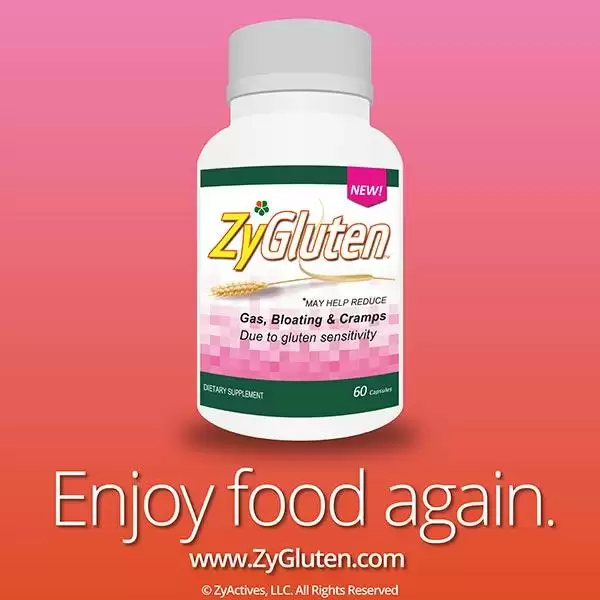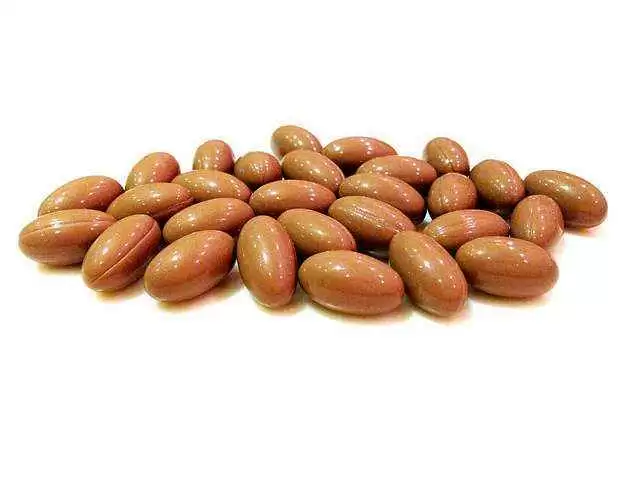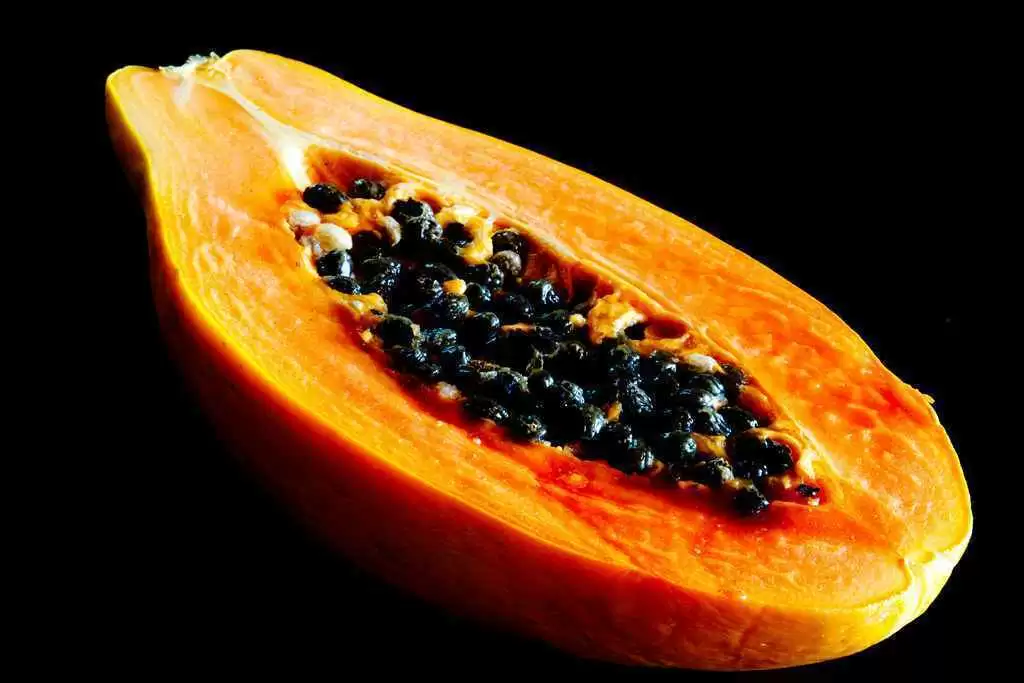
Celiac.com 01/26/2019 - Introduction: Gluten is a protein found in wheat and other grains such as rye and barley and is composed of glutenin and gliadin. The gliadin portion of this complex protein is the leading cause of gluten sensitivity and immunological response of the body. Millions of Americans are affected by the presence of gluten in their diet. Foods containing gluten are numerous: bread, pasta, muffins, beer, and many more. FDA regulation stipulates that the food must contain less than 20 ppm to be labeled Gluten-free.
ZyGluten is a blend of potent digestive enzymes including Protease, Amylase, Lipase and others along with Lactococci . Two capsules (750mg) of ZyGluten was added to a bread and pasta emulsion. Time points were taken within a 60 minute time frame.
Celiac.com Sponsor (A12):
Our objective was to study a dietary supplement, Zygluten, in a stomach simulator and assess hydrolysis of gluten concentration to below 20 ppm within 60 minutes. The development work was done in vitro in a Gastric simulator at 37◦C at a pH of 2 and 4.
Method
Foods tested: Whole Wheat Bread and Pasta
Gluten concentration in food and drink can be analyzed through the preferred AOAC method: RIDASCREEN Gliadin competitive by R-BioPharm. This is an enzyme immunoassay that measures peptide fragments of prolamins and recognizes the potentially toxic QQPFP sequence found in wheat, rye and barley. Foods or beverages containing more than 20 ppm (parts per million) gluten will elicit an immunological reaction in a person sensitive to gluten. Therefore, according to FDA and EC regulations, “gluten free” foods must not contain more than 20ppm gluten. RIDASCREEN Gliadin competitive kit detects gliadin of gluten to below 5ppm.
Extraction of Gliadin from Bread
- Used four slices of whole wheat bread per 1 L MilliQ water and blended the mixture in a Vitamix until completely homogenized.
- The pH was adjusted to 4.0 with concentrated HCL
- Aliquoted 500ml of emulsion mixture into flasks.
- Added 1 capsule of Zygluten to experimental flasks. No Zygluten was added into control flasks.
- 250 µ L samples were taken at time zero (T0) from each flask and placed into 2.5mL of cocktail solution in a 15mL confocal tube.
- Placed flasks in 37◦C incubator for 60 minutes with slight shaking. 250 µ L samples were taken at 30 minutes and 60 minutes, which were then added to 2.5ml of cocktail solution.
- Samples in cocktail solution were incubated for 45 minutes in 50◦C water bath.
- Tubes were removed from water bath and cooled to room temperature.
- 7.5 ml of freshly made 80% Ethanol was added to tubes and vigorously shaken for one hour.
- Then the tubes were centrifuged for 10 minutes to remove all particulates from solution.
- Supernatant was then used in the RIDASCREEN Gliadin test
- Analysis of Gliadin (Method followed per RIDASCREEEN Gliadin protocol)
- Analysis was done following RIDASCREEN Gliadin Kit protocol
- Control samples were diluted by mixing 80µL sample with 920µL sample diluents twice to bring into linear range needed for testing.
- Experimental samples were diluted by mixing 80µL sample with 920µL sample diluent to bring into linear range needed for testing.
- Remainder of protocol was followed per RIDASCREEN Gliadin Kit (R8001) sections titled Test Implementation and Results.
Pasta was cooked as instructed on labels. Amount of pasta tested in the experiment was the portion size stated on the label. The whole wheat bread was tested at four slices of bread per one liter of water. The foods were mixed with water using a blender and its pH was adjusted to 4 before transferring it to flasks for testing. Two capsules equaling a total of 750mg of ZyGluten were added to all experimental samples. No enzyme or additional material was added to control. Both, experimental flasks and controls were incubated at 37◦C at 100 RPM shaking for 60 minutes. Time points were taken at 0 minutes, 2 minutes, 30 minutes and 60 minutes when appropriate.
Gluten was then extracted from samples and analyzed by an AOAC certified test with Immunoessay .
Results
96% of gluten in wheat bread was hydrolyzed within the first few seconds of the addition of Zygluten. The amount of wheat bread tested was double the recommended serving size. At 30 minutes the amount of gluten was below 20 ppm and at 60 minutes the concentration of gluten was 4 ppm.
The hydrolysis of gluten in pasta was more rapid. In that more than 98% of gluten was broken down with the addition of ZyGluten. At time point 0 the gluten concentration was 14 ppm and then decreased to about 2-4 ppm by 60 minutes.
Study co-authors: Nora Lopez-Chiaffarelli, Isabel Gray-Horna PhD, Ramesh Chandran PhD, Rakesh Saini PhD.










Recommended Comments
Create an account or sign in to comment
You need to be a member in order to leave a comment
Create an account
Sign up for a new account in our community. It's easy!
Register a new accountSign in
Already have an account? Sign in here.
Sign In Now